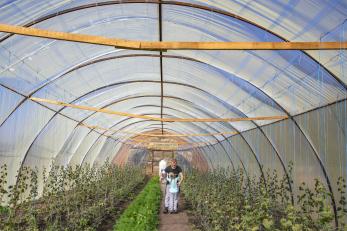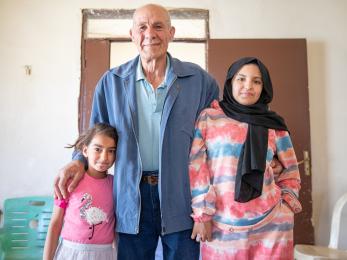Farmers in Wartime: Promoting Adaptability and Resilience for Agriculture in Ukraine

Report findings on agricultural production, exports, and other obstacles facing small-scale Ukrainian farmers include:
- 87.5% of respondents in the fruit and vegetable, 71.4% of poultry and 75% of dairy sector highlighted lack of labour that limits production.
- 30% of interviewed farmers are open to hiring veterans and people with disabilities, but agricultural equipment typically lacks the necessary accessibility modifications.
- Decreasing domestic demand, especially in dairy, honey, and fruit sectors as many of their main consumers, over 5 million women and children, left the country.
International attention has focused on the grain sector, due to its importance to global food security and concerns over export disruptions. Less attention, however, is paid to other sectors. Particularly, the fruit and vegetable, dairy, poultry, and honey sectors. Among the findings, are the impact of labour shortages as a significant factor curtailing production. Investments to adapt agricultural equipment for use by persons with disabilities (PWDs) could mitigate these shortages and lower unemployment among PWDs.
The destruction of infrastructure being another challenging factor for production in the wake of war. Among the solution examined are targeted activities to revitalise irrigation systems could increase vegetable and fruit production, especially in areas affected by the Kakhovka Dam's destruction in 2023. Local-level interventions focusing on transportation could prove beneficial, especially for household-level and smallholder producers, who are hardest hit by transport costs.


